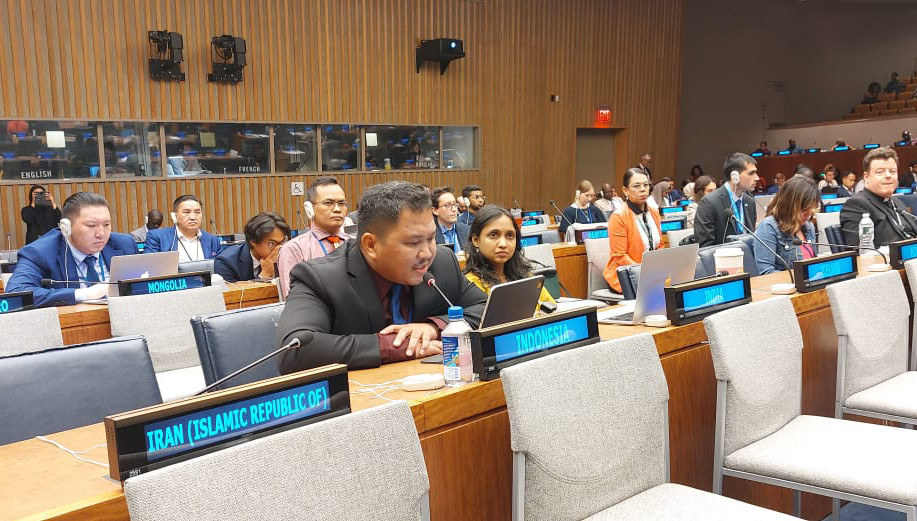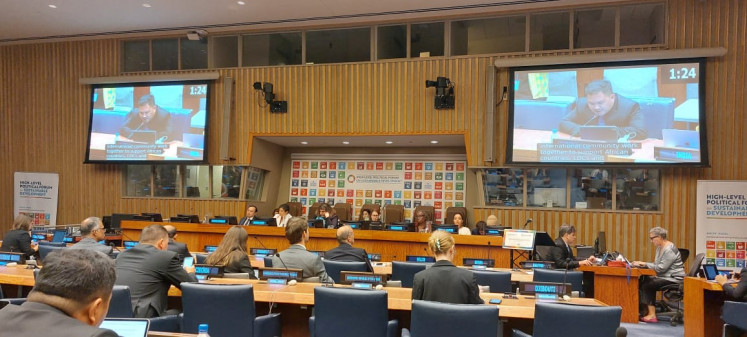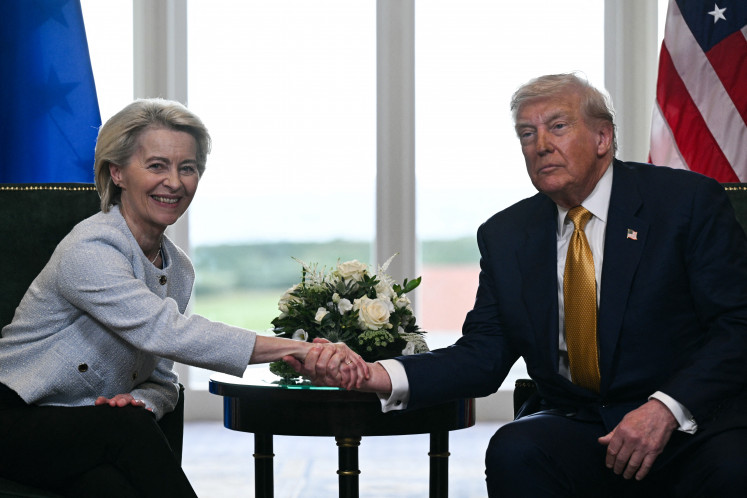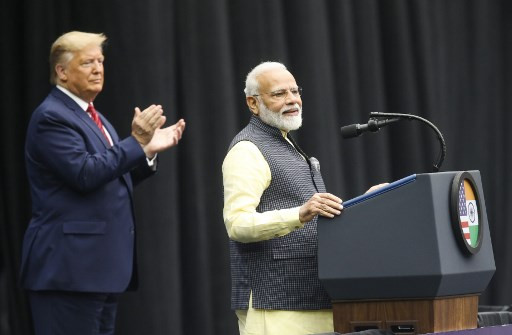Popular Reads
Top Results
Can't find what you're looking for?
View all search resultsPopular Reads
Top Results
Can't find what you're looking for?
View all search resultsIndonesia aims to elevate African countries, emboldening gotong royong values
Change text size
Gift Premium Articles
to Anyone
I
ndonesia, as a developing country, has started to gain more recognition around the world. The country is always interested in building international ties to ensure peace and prosperity for all. Indonesia has long agreed to pay special attention to African countries, underdeveloped countries and landlocked developing countries.
Head of the Development and Information Agency of the Villages, Disadvantaged Regions and Transmigration Ministry, Ivanovich Agusta, shared Indonesia's revenue during a session on Thursday (13/07). Titled African Countries, Underdeveloped Countries and Landlocked Developing Countries: Changing Currents, Reclaiming Lost Foundations and Starting the Path to the SDGs, refering to the Sustainable Development Goals it was part of the High-Level Political Forum on Sustainable Development 2023 held in the United Nations Headquarters that Indonesia has been attending in New York, the United States.
The meeting was attended by delegates from 196 countries. Indonesia presented an exhibition of SDG results from the national to village levels, and led a seminar titled Driving Changes at the Local Level: Innovative Approaches to Localize the SDGs. In terms of improving its ties with Africa, Indonesia chose to put a spotlight on capacity building, financial restructuring and technology transfer to address the problems both at home and in states located in the African continent.
"Long before the current crisis emerged, Indonesia had agreed to pay special attention to African countries, underdeveloped countries and landlocked developing countries," explained Ivanovich, "This was carried out in an effort to ensure that no country is left behind."
Currently there are 46 underdeveloped countries, covering 33 countries in Africa, as well as 32 landlocked developing countries, including 17 African countries. These countries remain disproportionately vulnerable to global crises and external shocks.
Because of the obstacles that these countries face, the international community has attempted to step up and assist them in a number of issues. Particularly in responding to crises, promoting recovery and progress in achieving the SDGs.
Photos courtesy of Ministry of Village, Development of Disadvantaged Regions and TransmigrationIn order to do its part, Indonesia has come up with three points to help ease the burden of the African countries, which are adding international financial accessibility, strengthening technical assistance and capacity building and advancing technological innovation in the region.
First, reforming the international financial architecture in order to provide better access for African countries, underdeveloped countries and landlocked developing countries is essential. Good access to financial resources will increase financial stability, as well as support the implementation of the policies and initiatives outlined in the 2063 Africa Agenda, the Doha Action Program and the Vienna Action Program.
It is also important to support these countries in managing their debts. This can be done through debt relief initiatives, debt restructuring and sustainable debt management strategies. The result will mean countries will be able to allocate fiscal space better, as well as promote long-term economic stability.
The second point that was put forth is to strengthen technical assistance and capacity building, particularly in human development. The community, especially the young and working age population, is an important asset to build resilience and advance the 2030 Agenda for Achieving the SDGs. While external components can be important, investing in people can also enhance a country's ability to design and implement effective future development strategies and policies.
Thirdly, the region is in need of infrastructure improvement. Indonesia aims to promote technology transfer and enhance the country's technological innovation capacity, to increase productivity, enhance competitiveness and promote sustainable development. This could be implemented through technology transfer agreements, cross-countries cooperation and government-private sector partnerships.
"Through this opportunity, Indonesia would like to underline once again, that international solidarity and cooperation are very important to further support African countries, underdeveloped countries and landlocked developing countries," concluded Ivanovich.
This article was published in collaboration with Ministry of Village, Development of Disadvantaged Regions and Transmigration











